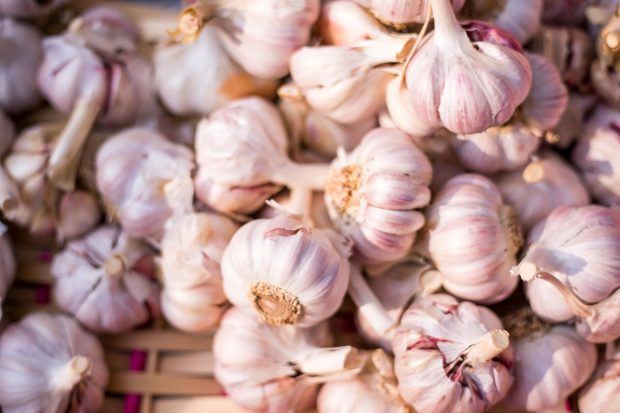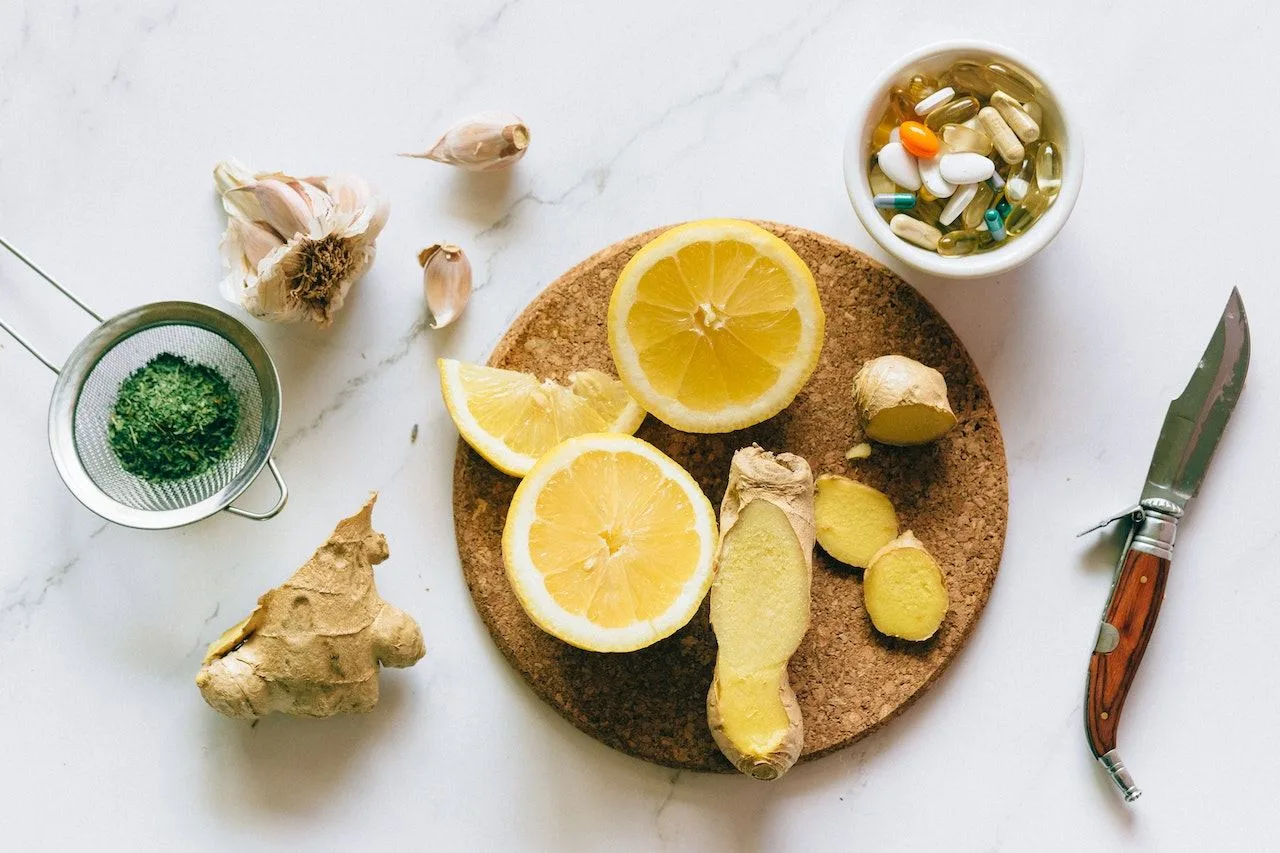The Covid-19 Pandemic led many of us to use natural home remedies for immune boosting and their health benefits, but this isn’t anything new.
Home remedies aimed at maintaining health and longevity have been passed down from generation to generation. From steaming with eucalyptus oil to using garlic cloves for toothaches, Mother nature has given us an abundance of natural remedies we can use at home, all backed up by science.
Home Remedies to Boost Longevity
1. Turmeric
Primarily used in South Asia as a part of Ayurvedic medicine, this golden spice has been shown to be ideal for treating pain (specifically pain associated with inflammation).
Turmeric’s main active component is curcumin, which has anti-inflammatory properties, and is known as a potential treatment for a number of health conditions, including increased ease of movement in people with osteoarthritis, and reduced pain. With Curcumin being considered an anticancer drug, it may also slow down the growth of cancer cells.
What Does Science Say?
A study published in the Medical Journal Trials compared the effectiveness of turmeric to that of an anti-inflammatory drug called diclofenac.
“Curcumin has similar efficacy to diclofenac, but demonstrated better tolerance among patients with knee osteoarthritis. Curcumin can be an alternative treatment option in patients with knee osteoarthritis.”
It can increase the number of antioxidants found in the body. Oxidative damage is believed to be one of the many mechanisms behind aging and many diseases.
Curcumin’s anti-inflammatory compound can fight health conditions and diseases, including:
How To Use It
A daily dose of turmeric is the best way to ensure that you get the most out of this herb. High-quality turmeric supplements are available, but you can also opt for incorporating it into your diet:
- Golden Milk: Boil 2 cups of milk with one teaspoon of powdered turmeric to aid with body pain and promote healthy sleep if taken before bed.
- Turmeric Honey: Mixing one part powdered turmeric with three parts raw honey can help boost immunity and lower inflammation if you have it every two hours when you feel a cold approaching.
- Tea: The curcumin in turmeric tea can help lower LDL Cholesterol (bad cholesterol), along with total cholesterol levels, along with preventing cancer in the digestive system.
The typical dose used to treat pain associated with inflammatory conditions is between 400 – 600 mg, three times a day.
2. Ginger
Gingerol, which people produce from a flowering plant in Southeast Asia, can yield both physical and psychological health benefits. You can use it fresh, dried, powdered, or in oil form. Ginger contains gingerol, a bioactive compound responsible for many of these herbs’ medicinal properties. With its anti-inflammatory and antioxidant effects, it can reduce oxidative stress.
What Does The Science Say?
Research has shown that those who suffer from arthritis experience better mobility, less joint swelling, and less joint pain after adding ginger to their diet for several months. The antioxidants contained in gingerols also help protect the body from free radicals, responsible for damaging cells, organs, and other tissues.
How To Use It
- Ginger Tea: Research has shown that consuming ginger tea may help protect you against heart disease, along with lowering blood pressure and cholesterol levels, and helping prevent blood clots and heart attacks. It also helps alleviate menstrual cramps if drunk at the beginning of your period.
- Ginger smoothie: Adding ginger root to your fruit smoothie adds more than just a spicy kick, but adds health benefits too. It acts as a natural anti-inflammatory and allows for fast absorption in smoothie form. It provides a yummy, anti-diabetic treat
- Ginger Ale: A more refreshing, tastier alternative that offers relief from migraines, reduces inflammation, supports heart health, and offers antioxidant effects.
3. Eucalyptus
Eucalyptus is typically used in essential oil form (with leaves being dried, crushed, and distilled to release the essential oil). It soon grew in popularity at the peak of the COVID-19 pandemic. This was due to its ability to restore one’s sense of smell. However, this nifty oil does so much for our overall health.
From relieving allergies, easing headaches, and even warding off mosquitos, eucalyptus is truly a multipurpose home remedy.
What Does Science Say?
Research conducted has shown that eucalyptus oil can not only decrease mucus but also expand the bronchi and bronchioles of your lungs, therefore aiding the relief of congestion. As an anti-inflammatory agent, eucalyptus oil can reduce pain from cold sores and speed up the healing process.
Associated with easing joint pain, many pain-relieving OTC creams and ointments contain this essential oil, making it effective to reduce pain and inflammation associated with many conditions.
How To Use It?
- Steaming: Respiratory conditions including asthma and sinusitis may be aided through the inhalation of steam with added eucalyptus oil. This reacts with mucous membranes, not only reducing mucus, but also loosening it so that you can cough it up.
- Body Rub: Mixing eucalyptus oil with your body rub can help provide a vapor that can loosen mucus and make it easier to cough up. This can also help with headaches.
- Diluted Oil: Diluting your eucalyptus oil in water allows it to be used on your skin to not only fight inflammation but also promote healing.
4. Garlic
If you can look past the strong smell, garlic can yield some incredible health benefits. These include protecting you from a common cold to even lowering your blood pressure and cholesterol levels. As a plant from the onion family, garlic is a known immune booster.
Along with improving bone health, garlic can lower total LDL (bad) cholesterol levels by about 10-15%. Given its beneficial effects, it’s no surprise that garlic helps you live longer.
What Does Science Say?
Scientists have figured out that most of garlic’s health benefits are caused by sulfur compounds formed when garlic enters your body from the digestive tract. These then travel all over the body while exerting strong biological effects.

Photo by team voyas on Unsplash
A 12-week study found that a daily garlic supplement reduced the number of colds by 63%, while another found that a high dose of aged garlic extract (about 2.56g per day) reduced the length of a cold by 61%. Another study found that 600-1500 mg of aged garlic extracts were just as effective as the drug Atenolol at reducing blood pressure over a 24-week period.
How To Use It?
- Eat it Raw: Yes, you read that right. Research shows that eating raw garlic on an empty stomach can reduce LDL cholesterol levels. According to a study published in the Journal of Nutrition, raw garlic contains a component called Allicin, which helps in thinning the blood and reducing cholesterol levels.
- Garlic Tea: If chomping down on raw garlic cloves is too much to handle (understandably so), then consider having it in your tea. You can prepare a warm drink with healthy and tasty spices, including cinnamon. It can improve immune health, prevent the development of cancer, and keep the heart healthy.
Can I combine these remedies?
There are so many other options that are probably in your spice cabinet or garden. However, listing them all would lead to an even longer list. The upside of all these listed remedies? You can mix and match them for the perfect combination of health benefits, including:
- Insomnia: Turmeric and Black Pepper with honey and warm milk
- Colds: Lemon Juice, Apple Cider Vinegar, Honey, and Ginger
- Bites/pimples/itches: Tea Tree oil
- Stomach Pains: Ginger Tea
Nature truly can be the best health remedy, and even be a tool in helping us achieve longevity.
MAIN IMAGE CREDIT: Photo by Nataliya Vaitkevich
References
- Parisius, L.M., Stock-Schröer, B., Berger, S., Hermann, K. and Joos, S., 2014. Use of home remedies: a cross-sectional survey of patients in Germany. BMC Family Practice, 15(1), pp.1-8.
- Schwartz, A.S.K., Gross, E., Geraedts, K., Rauchfuss, M., Wölfler, M.M., Häberlin, F., von Orelli, S., Eberhard, M., Imesch, P., Imthurn, B. and Leeners, B., 2019. The use of home remedies and complementary health approaches in endometriosis. Reproductive biomedicine online, 38(2), pp.260-271.



![women [longevity live]](https://longevitylive.com/wp-content/uploads/2020/01/photo-of-women-walking-down-the-street-1116984-100x100.jpg)










